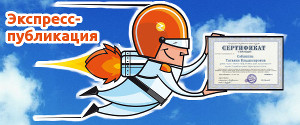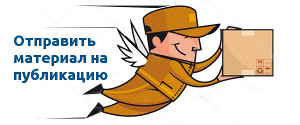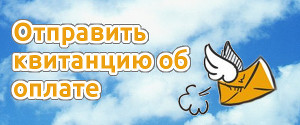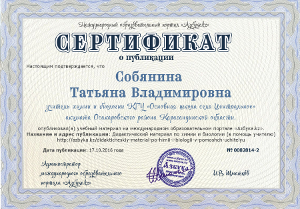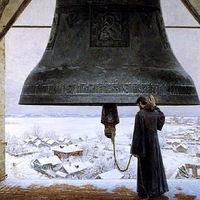Тема проекта: «Сохранишь природу — сохранишь себя»
|
Туитина Замзагуль Калкеновна — жоғары санатты ағылшын тілі пәні мұғалімі, № 38 мектеп-лицей, Астана қаласы |
 |
Педагогикалық ұстанымым:
«Жеті түрлі білім біл,
Жеті жұрттың тілін біл».
The theme of the project: «Let’s think of the Future»
Жобаның тақырыбы:
«Айналайын Адамдар, аялаңдар.
Туған жердің ырысы мол табиғатын!»
Тема проекта: «Сохранишь природу — сохранишь себя».
The type of the project: mixed (practical-oriented and researching)
Жобаның түрі: аралас (практикалық бағыт және зерттеу)
Тип проекта: смешанный (практико-ориентированный и исследовательский)
The aim of the project: researching ecological problems (reasonably following connections); searching the ways of solving these problems; finding and learning necessary materials; developing critical thinking and communicative skills.
Жобаның мақсаты: сыртқы қоршаған ортаның экологиясын зерттеу (себеп-салдарын анықтау); жергілікті экологиялық проблемаларды шешу жолдарын зерттеу; іздену мен ғылыми зерттеу жұмыстарын қолдана отырып оқушылардың сын тұрғысынан ойлау және қарым-қатынастық қабілеттерін дамыту.
Цель проекта: исследование экологических проблем (причинно-следственные связи); поиск решения этих проблем; поиск и изучение соответствующих материалов; развитие критического мышления, коммуникативных умений.
Visual aids: Interactive Whiteboard, flipcharts, list of proverbs (Kazakh, Russian, English), map of Kazakhstan, charts and diagrammes, Internet.
Жобаның орындалу уақыты: 2 апта
Жобамен жұмысты ұйымдастыру кезеңдері
|
Stages |
The goals of the project |
Student’s activity |
Teacher’s activity |
|
І.Organization stage |
Creating some situations which allow finding out two or more problems of the discussed theme. |
To make information precise, to discuss tasks, to find out problems and to divide into groups. |
To motivate students, to explain the aims and to observe. |
|
ІI. Planning |
Putting forward and discussing the hypothesis of solving the problems. |
To suggest a hypothesis, to make up the goals. |
To help in analysis and synthesis. |
|
ІII.Choosing methods of checking hypothesis |
Discussing the methods of checking hypothesis and possible source of information. |
To discuss and choose the most optimal version and necessary information. |
To watch, to consult and to give advice. |
|
ІV. Making project |
Searching necessary information, making project. |
To work with information, to express and summarize the ideas; to prepare to protect the project. |
To watch and to give advice |
|
V. Protecting the projects |
Presenting the projects and evaluating the results. |
To protect the projects and evaluate the results. |
Participate in analyzing and evaluating. |
I этап
1. Процесс проектирования начинаем с создания проблемной ситуации. Учащимся предлагается подумать над следующими высказываниями:
— If you don’t think about the future you will not have it.
— Cудың ды сұрауы бар.
Природа — сад, а люди в нем цветы не сбережешь ее, не будешь жив и ты.
2. Look at the map and find ecological zones of Kazakhstan.
3. Write down your ideas about ecological problems of our region.
4. Draw a diagrammme

5. Students divide into groups.
II этап
1. Экология, география және биология сабақтарында алған білімдерін анықтай отырып алға мақсат қою.
2. Vocabulary (Find the definitions of the words in Kazakh and Russian languages)
|
pollution |
Лас, ластану |
Грязь, загрязнение |
|
environment |
|
|
|
Ecological disaster |
|
|
|
protection |
|
|
|
Harmful effects |
|
|
|
Poisonous substances |
|
|
|
Natural balance |
|
|
3. Look at the photo gallery: «We must stop now, or it will be too late»
4 Answer the questions: Where does pollution come from? — P1-P2-P3 ...
What must we stop and why? — P1, P2...
5. Look at the headlines of articles and guess what they are about.
«A Lot of Little Litter Make Big Problems»
«Табиғтты аяла»
«В защиту экологии нашего города»
6. Every group suggests a hypothesis.
III этап
Students discuss in small groups their hypothesis.
E.g. Harmful effects of civilization on nature lead to the ecological disaster.
Forms of pollution — Reasons — Consequences
Оқушылар гипотезаны талқылай отырып, ең маңызды шешімді табады.
IV этап
1. Ақпаратпен жұмыс істей отырып қорытынды бақылау жасау.Оқушылар жобаны қорғауңа дайындалады
2. The results of research work
Forms of pollution Reasons Consequences
Land pollution industrial, ozone holes,
nuclear wastes diseases
ауаның ластануы автокөліктер, оттеғін азайтады
транспорт өкпе ауруы
загрязнение воды химические высыхание рек и озёр,
отходы болезни
3. Measures (қабылдайтын шешім)
— Modern Technology
— Pollution Control System
— Special Ecological Education
— International Cooperation
V этап
— Protecting the projects
— Evaluation
- 9656 просмотров




